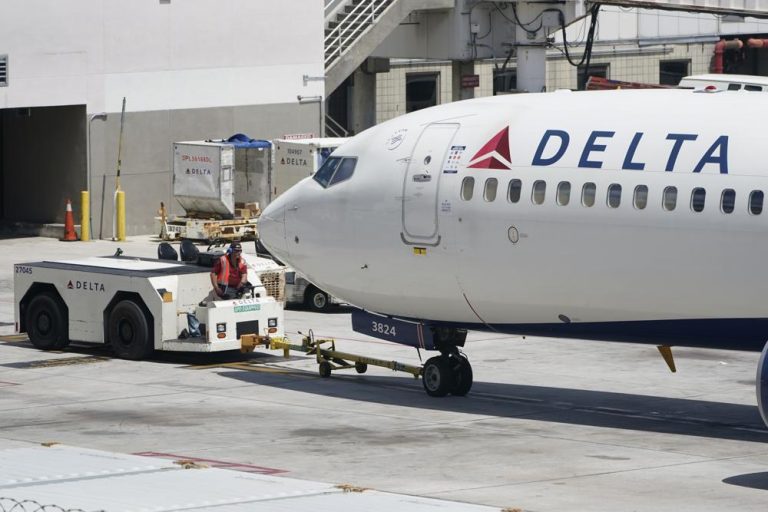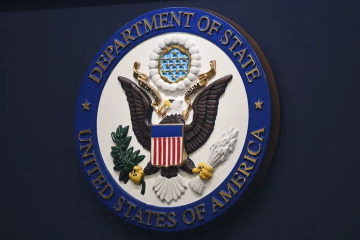Washington DC, July 24, 2024 – U.S. regulators are investigating why Delta Air Lines failed to recover as quickly as other airlines from a global technology breakdown and whether Delta’s treatment of passengers stranded by canceled and delayed flights violated federal rules.
Transportation Secretary Pete Buttigieg on Tuesday announced the investigation into Delta’s response to the outage, which he said has affected more than half a million of the airline’s passengers.
A Delta official said the airline expects to return to normal operations by the end of the week.
Delta and its Delta Connection partners canceled more than 500 flights Tuesday. That was down by more than half from Monday but still accounted for nearly two-thirds of all canceled flights in the United States, according to tracking platform FlightAware.
Many airlines were affected when cybersecurity company CrowdStrike sent a faulty update to more than 8 million Microsoft computers around the world late last week. Most of them reduced cancellations to roughly normal levels by the end of the weekend.
Atlanta-based Delta and its partners have canceled more than 6,500 flights since Friday, far more than any other airline, according to figures from FlightAware and travel-data provider Cirium.
Buttigieg said his department will investigate “how it could be that days after the other airlines are back to normal, Delta is still canceling hundreds of flights.”
At a news conference, Buttigieg said the Transportation Department will also examine Delta’s customer service, including “unacceptable” lines for customer service and reports that unaccompanied minors were stranded at airports. He said the department has received more than 3,000 complaints about the airline’s breakdown.
Delta said it was cooperating with the investigation.
“We remain entirely focused on restoring our operation after cybersecurity vendor CrowdStrike’s faulty Windows update rendered IT systems across the globe inoperable,” an airline spokesperson said in a statement. “Across our operation, Delta teams are working tirelessly to care for and make it right for customers” affected by the disruptions.
John Laughter, Delta’s chief of operations, said the airline was moving planes, pilots and flight attendants “to where they need to be so we can return to normal operations by the end of the week.”
The collapse at Delta has been stunning for an outfit that was widely viewed as the best big U.S. airline — the most profitable before and after the pandemic, and the best-run. In recent years, Delta has almost always ranked near the top among all U.S. carriers for on-time performance.
Delta appears to rely more than other airlines on systems that run on Microsoft Windows. The airline said upward of half its technology systems are Windows-based, including a key tool used to schedule pilots and flight attendants. That system could not keep up with the high number of changes triggered by the outage.
Delta said late Tuesday that a backlog of “issues” in the crew-scheduling system was reduced by 75% over the last 36 hours, and the airline was also making progress in returning lost bags to their owners.
In addition to probing the cause of Delta’s collapse, investigators are likely to focus on whether Delta is complying with federal requirements such as offering prompt refunds to passengers whose flights are canceled or significantly delayed. The refunds are supposed to be in the form the customer used to pay for their ticket — typically a credit card — and not just a voucher.
In a text provided to The Associated Press, a Delta passenger whose flight was canceled Saturday was told, “If you prefer not to rebook your trip, your ticket value will automatically be available as an eCredit that can be used towards a future Delta ticket.”
In Washington, lawmakers are beginning to weigh in. Sen. Maria Cantwell, D-Wash., chair of the Senate committee that oversees airlines, said in a letter to Delta CEO Ed Bastian that she is “concerned” that Delta is not complying with passenger rights contained in a law that Congress passed in May.
“While the technology outage was clearly not caused by Delta or any airline, I am nevertheless concerned that Delta is failing to meet the moment and adequately protect the needs of passengers,” Cantwell wrote.
Delta’s meltdown mirrors that of Southwest Airlines, which canceled nearly 17,000 flights over 15 days in December 2022. A Transportation Department investigation ended with Southwest agreeing to pay a $35 million fine as part of a $140 million settlement.
Southwest blamed its breakdown on a winter storm, but other airlines recovered in a couple days while Southwest did not. Consumer advocates see the same pattern with Delta this month — the airline continues to blame the CrowdStrike outage while rivals such as American recovered quickly. Even United Airlines, the second-worst at cancellations, was back on track Monday.
“It’s not about the thing that caused the problem, it’s about how you recover from the problem. That’s the test of an airline,” said William McGee, a former aircraft dispatcher who is a consumer advocate at the American Economic Liberties Project, a group critical of large corporations. – AP









